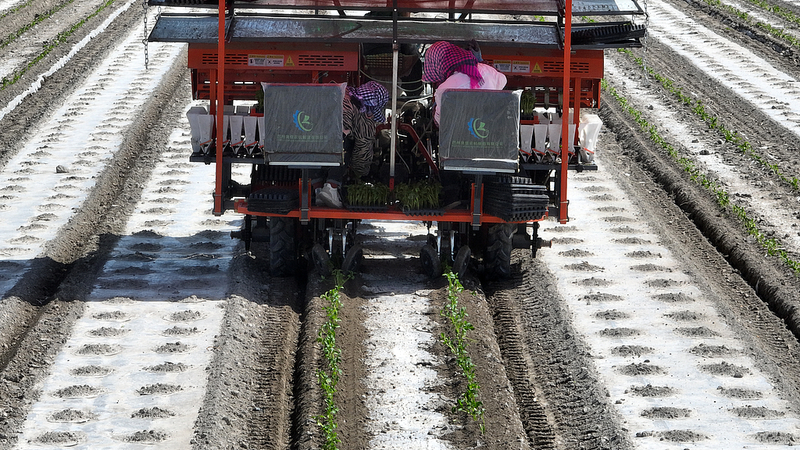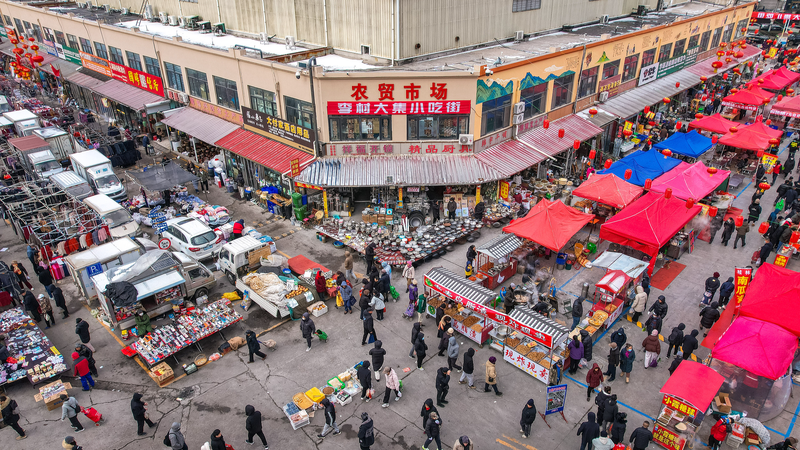As spring arrives in April, the tomato fields of Bayingolin Mongolian Autonomous Prefecture in the Chinese mainland's Xinjiang Uygur Autonomous Region are buzzing with activity. With 120,000 mu (8,000 hectares) entering prime transplantation season, farmers are turning to high-tech solutions to boost productivity.
At the heart of this transformation is the BeiDou satellite navigation and positioning system. Precision-guided seeders follow preset routes at constant speed, ensuring uniform row and plant spacing. This level of accuracy not only speeds up each hectare's transplanting process but also reduces waste and manual labor demands.
Early data show mechanized transplantation powered by BeiDou cuts planting time by up to 30% while improving seedling survival rates. Experts suggest this model could be a blueprint for precision agriculture in other regions facing labor shortages and climate challenges.
From local fields to global markets, the blend of traditional agriculture and cutting-edge satellite technology highlights a sustainable path forward for food production. It's a story of how digital innovation meets age-old farming practices to feed a growing world.
Reference(s):
Watch: BeiDou assists mechanized tomato transplantation in Xinjiang
cgtn.com




